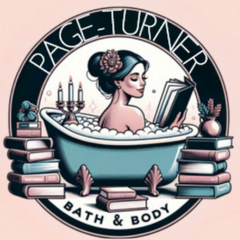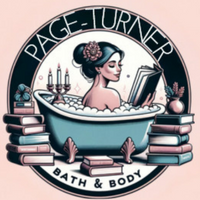Cheshire Cat Quotes Explained
The Cheshire Cat in Lewis Carroll's "Alice's Adventures in Wonderland" is a character of mystery and paradox. His enigmatic sayings not only add to the whimsical charm of Wonderland but also offer deep, often puzzling insights. Let's delve into his quotes and their meanings.
Relax with this Cheshire Cat Foaming Sugar Scrub.
1. When the day becomes the night, and the sky becomes the sea when the clock strikes heavy, and there’s no time for tea, and in our darkest hour, before my final rhyme, she will come back home to Wonderland and turn back the hands of time.
This quote is a lyrical depiction of the surreal and transformative nature of Wonderland. It plays with the concept of time and natural order, indicating a world where the usual rules don't apply. The day turning into night and the sky becoming the sea symbolize a complete reversal of normalcy, representing the topsy-turvy world Alice has entered. The reference to the clock striking heavy and the absence of time for tea could suggest the pressures and constraints of time felt in the real world are irrelevant in Wonderland. The line "before my final rhyme" adds a sense of impending conclusion or climax, while the notion of turning back the hands of time speaks to the desire or ability to revisit and perhaps alter the past. This quote beautifully encapsulates the whimsical yet profound essence of Wonderland, a place where the boundaries of reality are blurred, and time is a fluid concept.
2. Well! I’ve often seen a cat without a grin,” thought Alice; “but a grin without a cat! It’s the most curious thing I ever saw in all my life!
Alice's thought about seeing a grin without a cat reflects the wonder and absurdity of her experiences in Wonderland. In the real world, a grin cannot exist independently of the person (or animal) grinning. However, in Wonderland, this rule is defied when Alice encounters the Cheshire Cat, who can make his body invisible, leaving only his grin visible. This encounter challenges her (and the reader's) understanding of reality and normality. It symbolizes the peculiarities and paradoxes of Wonderland, a place where conventional logic does not apply, and the impossible becomes possible. This quote highlights one of the central themes of the story - the exploration and questioning of reality and perception.
3. This way? That way? Does it matter? Left, right, up, down! All mixed up thanks to the shadows! Step deeper into the forest to the deserted garden. You might find shadows in the upside-down room!
This quote captures the confusing and often contradictory nature of directions and decisions in Wonderland. The Cheshire Cat suggests that conventional concepts of orientation (left, right, up, down) are jumbled, possibly due to the 'shadows' that alter perception. The mention of stepping deeper into the forest to a deserted garden and finding shadows in the upside-down room adds to the sense of disorientation and mystery. It implies that in Wonderland, the journey itself is as significant as the destination, if not more so. This idea reflects the broader theme of the story, where Alice's journey is less about reaching a particular place and more about the bizarre and enlightening experiences she encounters along the way. The quote is a metaphor for life's journey, where the path isn’t always clear, and sometimes the direction we choose may lead us to unexpected and surreal experiences.
4. “You haven’t? You haven’t?! Oh, but you must! She’ll be mad about you. Simply mad. [chuckles, then rolls over and almost disappears] The mome raths outgrabe…”
This quote showcases the Cheshire Cat’s playful and enigmatic character. The repetition of "You haven’t?" emphasizes disbelief or mock surprise, creating a sense of urgency or importance about an unspecified subject. The statement "She’ll be mad about you. Simply mad." is a clever play on words, suggesting both affection and madness - themes central to Wonderland. The Cheshire Cat's chuckle and partial disappearance add to his mysterious and whimsical nature. The phrase "The mome raths outgrabe" is a nonsensical line from Lewis Carroll's poem "Jabberwocky." In the context of the Cheshire Cat's dialogue, it further emphasizes the absurdity and playful use of language typical in Wonderland. This quote reflects the whimsical, unpredictable, and sometimes confusing interactions that Alice has with the inhabitants of Wonderland.
5. “Somehow, you strayed and lost your way, and now there’ll be no time to play, no time for joy, no time for friends – not even time to make amends.”
This quote reflects on the consequences of losing one's way, both literally and metaphorically. It suggests that straying from one’s path can lead to missing out on life's joys and pleasures - play, joy, friends, and the opportunity to rectify mistakes. In the context of Alice's adventures in Wonderland, this could symbolize the loss of innocence and the transition from childhood to adulthood, where responsibilities and expectations leave less room for leisure and carefree enjoyment. It also touches on the theme of time, a recurring element in the story, and the regret associated with wasted or lost time. The quote poignantly captures the bittersweet realization that choices and actions have consequences, and that time, once gone, cannot be reclaimed for things left undone or unsaid.
6. Alice asked the Cheshire Cat, who was sitting in a tree, “What road do I take?” The cat asked, “Where do you want to go?” “I don’t know,” Alice answered. “Then,” said the cat, “it really doesn’t matter, does it?
This conversation between Alice and the Cheshire Cat is one of the most iconic in Lewis Carroll's "Alice's Adventures in Wonderland". It profoundly captures the essence of direction and purpose. When Alice admits she doesn’t know where she wants to go, the Cheshire Cat logically concludes that the road she takes is inconsequential. This exchange metaphorically speaks to the importance of having a goal or direction in life. Without a destination or purpose in mind, one's path is arbitrary. This quote highlights the existential theme of the story, suggesting that the choices we make are significant only when we have a clear understanding of our goals and desires.
7. In that direction,” the Cat said, waving its right paw round, “lives a Hatter: and in that direction,” waving the other paw, “lives a March Hare. Visit either you like: they’re both mad.
The Cheshire Cat’s description of the Hatter and the March Hare highlights a fundamental aspect of Wonderland: its inhabitants' madness. By saying “they’re both mad,” the Cat implies that madness is a common, perhaps even necessary, condition in this fantastical world. This quote plays with the concept of normalcy and insanity in Wonderland, suggesting that what is considered mad in one world might be normal in another. It also reflects the whimsical and unpredictable nature of the characters Alice encounters, emphasizing the story's theme that logic and reason as we know them do not always apply.
8. “Everything’s got a moral, if only you can find it.”
This quote represents the Cheshire Cat's philosophical side. He suggests that every situation, no matter how absurd or nonsensical, has a lesson to offer. This reflects Carroll's ability to weave moral and educational themes into his whimsical narrative. The quote encourages readers to look beyond the surface and find deeper meanings in their experiences, no matter how trivial or bizarre they may seem. It speaks to the human tendency to seek purpose and learning in all aspects of life, and it aligns with the Victorian era's emphasis on morality and didacticism in literature.
9. “Oh, you can’t help that,” said the Cat: “we’re all mad here. I’m mad. You’re mad.” “How do you know I’m mad?” said Alice. “You must be,” said the Cat, or you wouldn’t have come here.”
In this iconic exchange, the Cheshire Cat explains to Alice the inherent madness of everyone in Wonderland. His statement, “we’re all mad here,” suggests that madness is a relative concept, normal in the context of Wonderland. When Alice questions how he knows she is mad, the Cat implies that her presence in this bizarre world is proof enough of her madness. This conversation touches on the theme of identity and perception in the story. It playfully challenges the idea of sanity and suggests that normality is subjective and varies based on one's environment.
10. Those who say there’s nothing like a nice cup of tea for calming the nerves never had *real* tea. It’s like a syringe of adrenaline straight to the heart!
This whimsical quote twists the traditional view of tea as a calming beverage. The Cheshire Cat humorously suggests that ‘real’ tea has quite the opposite effect, likening it to an adrenaline rush. This statement is reflective of the topsy-turvy nature of Wonderland, where common expectations and norms are often inverted.
11. “I’ve never trusted toadstools, but I suppose some must have their good points.”
The Cheshire Cat’s comment on toadstools reflects a cautious yet open-minded attitude. While he expresses a personal distrust of toadstools, he acknowledges the possibility that they might have redeeming qualities. This quote subtly encourages not to dismiss things outright and to remain open to finding value in the unexpected.
12. Meta-Essence is the life-force of Wonderland. That of your enemies is eI knew who I was this morning, but I have changed a few times since then. Especially potent. Collect what you can. Use it wisely.
This quote delves into the more mystical aspects of Wonderland, referring to a life-force that powers the realm. The concept of ‘Meta-Essence’ being particularly potent in one's enemies and the advice to collect and use it wisely adds a layer of strategy and depth to navigating Wonderland. It's an allegory for harnessing the energy and strengths found even in adversarial situations.
13. “You are too naïve if you do believe life is innocent laughter and fun.”
Here, the Cheshire Cat offers a sobering view of life, warning against the naivety of seeing life only as joyful and carefree. This reflects the underlying complexities and darker themes in "Alice's Adventures in Wonderland", where the whimsical and fantastical elements are often tinged with danger and unpredictability.


Leave a comment